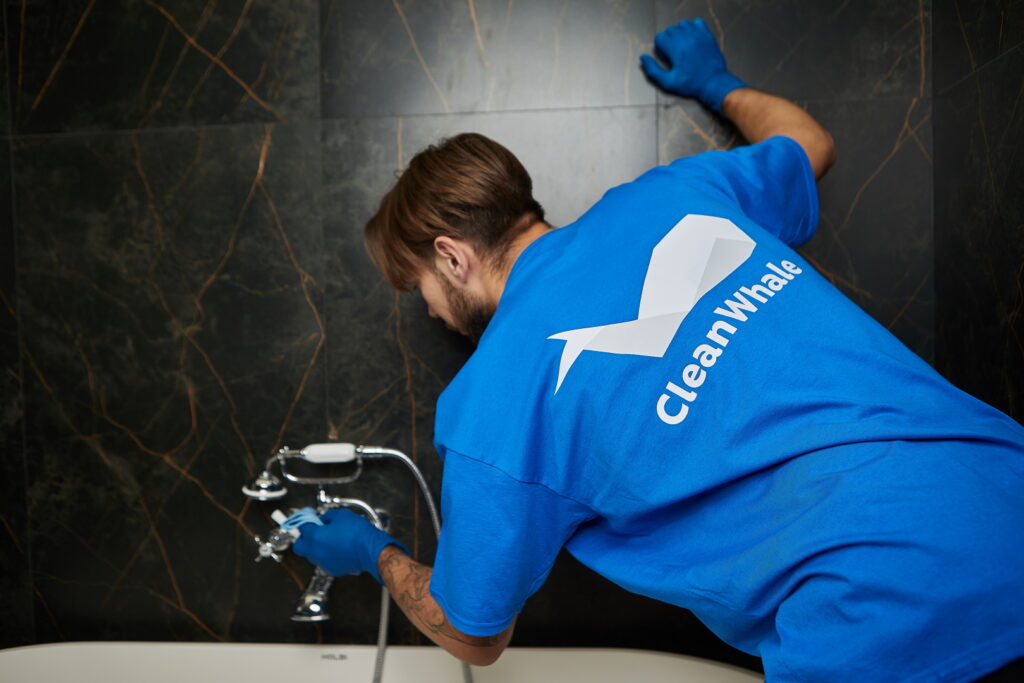Why Didn’t Uber Create a Cleaning App?
At first glance, the idea of Uber applying its on-demand service model to cleaning might seem like a natural progression. Both ride-hailing and cleaning involve connecting service providers with customers through a mobile app, promising convenience at the tap of a button. However, the cleaning industry presents challenges that make it a poor fit for Uber's streamlined and scalable approach. Here’s why Uber likely avoided venturing into this space.

1. Cleaning Is Inherently Complex and Time-Consuming
Unlike ride-hailing, which revolves around a single straightforward service—transportation—cleaning is a multifaceted process that requires customization, effort, and time. A cleaning job is not a one-size-fits-all service, and this complexity introduces several hurdles:
- Varied Scope of Work: Cleaning tasks range from surface-level tidying to deep cleaning, which might involve scrubbing grout, cleaning carpets, or organizing spaces. Each job can differ significantly, making it difficult to standardize services.
- Long Time Commitment: Where a typical Uber ride lasts 20-30 minutes, cleaning services often take 4-6 hours or more, depending on the size and state of the space. This extended duration doesn’t align with Uber’s model of quick turnaround and high-volume transactions.
- Logistical Challenges: Cleaners need specific tools and supplies, such as vacuum cleaners, mops, and cleaning agents. Coordinating who provides these items—the cleaner or the customer—adds another layer of complexity.
2. High Level of Communication and Coordination Needed
Cleaning requires clear communication between customers and service providers, something that Uber’s ride-hailing app is not designed to handle. For instance:
- Special Requests: Customers may have unique instructions, such as avoiding certain rooms, using specific cleaning products, or giving extra attention to high-traffic areas.
- Dynamic Scheduling: Cleaning often requires flexible timing, especially for households with unpredictable routines involving children, pets, or guests.
- Customer Preferences: Beyond the basics, some customers might request eco-friendly products or specific techniques, requiring detailed discussions and customization.
This need for back-and-forth communication makes it difficult to achieve the seamless, one-tap experience that Uber is known for.
3. Quality Control Is Difficult to Standardize
The success of a ride-hailing trip is easy to evaluate: Did the driver deliver the passenger to their destination safely and on time? Cleaning, however, is subjective and harder to assess.
- Differing Expectations: One customer’s version of “clean” might vastly differ from another’s. What satisfies one client might leave another disappointed.
- Delayed Feedback: Unlike a ride, where feedback is immediate, the quality of cleaning might not be apparent until hours or even days later.
- Inspection Challenges: Ensuring quality might require inspections or photo documentation, adding time and cost.
Without consistent ways to measure and guarantee quality, Uber would struggle to maintain customer satisfaction.
4. Risk of Direct Hiring Undermines the Platform
A significant issue in the cleaning industry is the potential for customers to bypass the platform entirely after their first booking. Unlike ride-hailing, where customers rarely request the same driver repeatedly, cleaning fosters relationships between clients and cleaners.
- Familiarity Builds Trust: After a few successful jobs, clients often feel comfortable contacting cleaners directly, avoiding service fees.
- Higher Earnings for Cleaners: By cutting out the middleman, cleaners can earn more per job, creating an incentive to work independently.
This dynamic undermines the scalability and profitability of an Uber-like platform for cleaning services.
5. High Risk of Liability and Customer Support Costs
The cleaning industry carries more inherent risks than ride-hailing, which are challenging to mitigate:
- Property Damage: Accidental breakage of valuables during cleaning could lead to expensive claims and disputes.
- Theft Allegations: Even unfounded accusations of theft can harm a platform’s reputation and require extensive support to resolve.
- Health and Safety Issues: Cleaners face exposure to hazardous substances, allergens, or biohazards, potentially leading to health problems or legal complications.
To address these risks, Uber would need to invest heavily in comprehensive insurance coverage, rigorous vetting processes, and a responsive customer support system—escalating operational costs significantly.
6. Scalability Issues and Regional Challenges
One of Uber’s key strengths is scalability: its model works efficiently across cities and countries. However, cleaning services present regional challenges that hinder scalability:
- Cultural Expectations: Standards of cleanliness vary widely across regions, complicating efforts to offer a standardized service.
- Labor Laws and Regulations: Domestic work regulations differ globally, requiring compliance with complex legal frameworks in each market.
- Availability of Reliable Workers: Unlike drivers, who can easily join Uber with a car and basic training, finding skilled, trustworthy cleaners is a more challenging and time-intensive process.
These regional variations make it hard for an on-demand cleaning app to achieve the same global scale as ride-hailing.
Conclusion
While the concept of an Uber-like app for cleaning might appear promising, the operational challenges make it far less feasible than ride-hailing. The complexities of cleaning services—customization, communication, quality control, and liability—introduce significant barriers to scalability and profitability.
Instead of pursuing this market, Uber has focused on sectors where its model excels, such as ride-hailing, food delivery, and freight. The cleaning industry, with its high-touch, personalized nature, is better suited to niche platforms that can address these challenges with specialized solutions.
By avoiding the pitfalls of a cleaning app, Uber demonstrates a strategic understanding of its strengths and limitations, reinforcing its position as a leader in scalable, efficient on-demand services.















